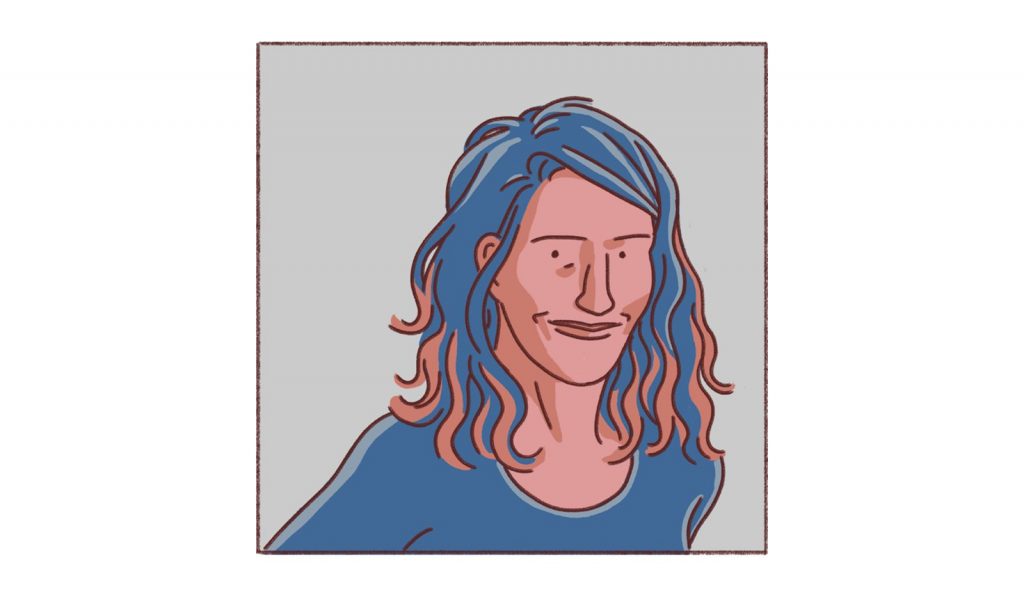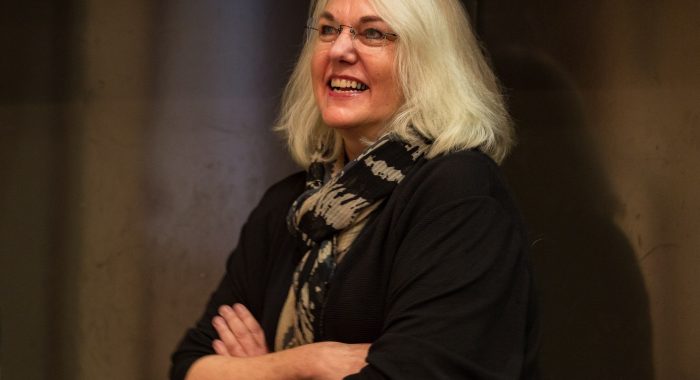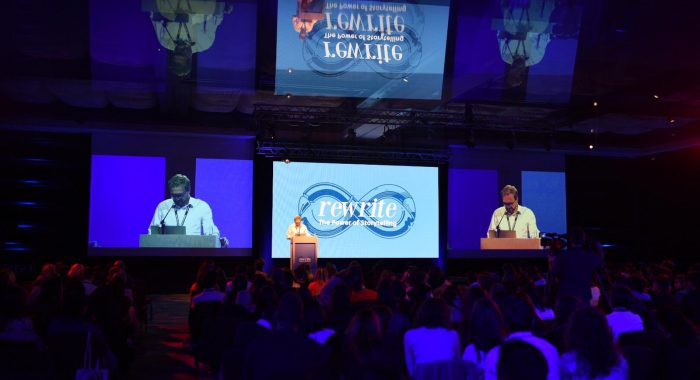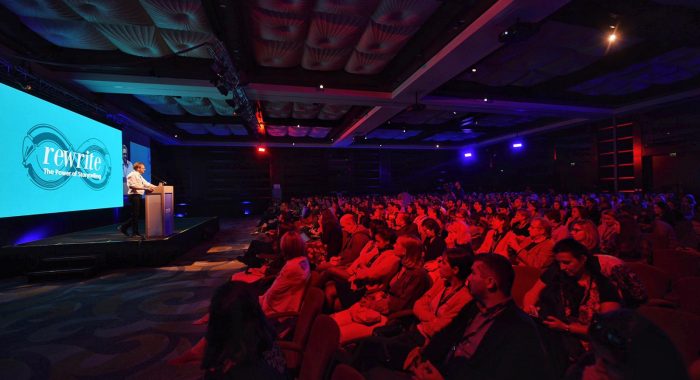
Lulu Miller was working in a woodshop when she fell in love with radio. After graduating with a degree in history from Swarthmore College, Miller, born Louisa Elizabeth Miller, moved to New York. She was living in a basement apartment in Queens, trying to write fiction, and working as a woodworker’s assistant, as she was interested in sculpture. In the woodshop, she would listen to the radio every day and that was how she discovered Radiolab, then a weekly show on WNYC. Although she’d had no previous training in radio journalism, she wrote a letter to the producers, asking if she could volunteer.
She started as an intern, going in one day a week to answer emails and burn CDs. Eventually, as Miller herself says on her website, she „somehow tricked the folk at Radiolab to hire me, and was lucky enough to be one of their producers for five years.” Her work at Radiolab covering science has been recognized by The Third Coast International Audio Festival, The Peabody Awards and The Missouri Review, where she was the First Runner-up in the Professionally-Recorded Documentary category of their 2011 Audio Competition with her „Falling in Love” episode.
Although she’d had no previous training in radio journalism, doing impro in college gave Miller a surprisingly good foundation, she says. “Going into an interview is like going into an impro scene,” she explains. “If you get out of your head, you’re OK.” The history classes also helped her discover a love of primary-source research, of doubting the ‘experts’ and turning instead to the people on the ground to tell a story. “The process of interviewing and editing tape is not unlike the joyously grueling task of primary-source research: combing through hours of tape in search of the rare gems—emotion, humor, surprising scene details—that deepen a story.”
In 2013 she left Radiolab to study and teach fiction at the University of Virginia, on a Poe-Faulkner Fellowship.
Two years after her Fellowship, Miller met Alix Spiegel, a former producer for This American Life, at the Third Coast International Audio Festival. Spiegel asked Miller if she wanted to produce a piece she was working on, and that was the first talk they had about what would later become Invisibilia, a radio program launched in January 2015 on NPR about the unseen forces which shape human behavior – our ideas, beliefs, assumptions, and thoughts. Invisibilia interweaves personal stories and fascinating new psychological and brain science in a way that, ultimately, makes you see your own life differently. Its first season made history when it hit 50 million downloads and was placed on more than 400 public radio stations.
Miller hunts for stories „in which Duct-Tape Solves the Ethereal Sadness”, as she is being quoted on her profile on National Public Radio website. She likes to cover stories that challenge our assumptions about how the human organism works, such as „How to become Batman”, an Invisibilia episode about a blind man who uses echolocation to navigate the world and who says expectations have helped him see. Another story she reported was „Editing your life’s stories can create happier endings”, about how editing the stories we tell ourselves can help us with our mental health and more. Miller took a break from Invisbilia to write a book. Why Fish Don’t Exist, her nonfiction book about taxonomy and when the desire to order the world becomes madness, will be published in 2020 by Simon & Schuster, with illustrations by Kate Samworth, another one of our 2019 speakers. Her other written work on science has been published in the New Yorker, VQR, Catapult and beyond.
Get to know Lulu Miller’s work
- How to become Batman, an audio story about a blind man who uses echolocation to navigate the world. The story follows the effect our expectations can have on the people around us. If we expect a blind person to not be able to do anything, then she or he will surely be unable to do anything.
- Editing Your Life’s Stories Can Create Happier Endings, an audio story about how editing the stories we tell ourselves can help us with our mental health and more. ”The idea is that if your believe you are something else – perhaps smarter, more socially at ease – you can allow for profound changes to occur.”
- In honor of LL Cool J’s fiftieth birthday, fifty other things ladies love: just like the title says, here is a list with fifty other things ladies love except rapper, entrepreneur and actor LL Cool J.
Lulu Miller is speaking at the 9th edition of The Power of Storytelling. Register here to meet her and the other amazing speakers who will tackle this year’s theme: Heal.



